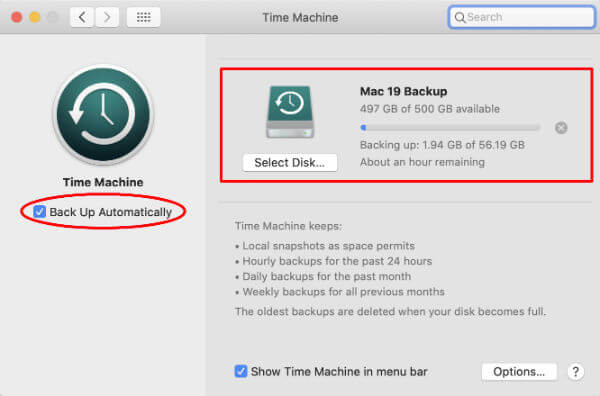The WD Elements External Portable Hard Drive offers reliable storage, fast data transfer rates and universal connectivity with USB 3.0 and USB 2.0 devices to back up your files on the go. With 1TB of memory, this portable hard drive provides ample data storage space in a compact device.
- And both are slower than the capabilities of a SATA connection. Maybe the gigabit ethernet is slightly faster than a slow platter hard drive, but the SSD likely won't be a night-and-day type of difference. And not to lessen the value of @Tesserax's suggestion of attaching the SSD to USB, but USB is even slower than SATA & gigabit ethernet.
- Time machine on SSD vs HDD. Thread starter al404; Start date Mar 7, 2019; Sort by reaction score; Forums. Al404 macrumors 6502. Original poster.
- The WD Elements External Portable Hard Drive offers reliable storage, fast data transfer rates and universal connectivity with USB 3.0 and USB 2.0 devices to back up your files on the go. With 1TB of memory, this portable hard drive provides ample data storage space in a compact device.
- A solid-state drive (SSD) and hard disk drive (HDD) can perform the same storage role in a computer, but there are notable differences between the two options.
- This is how SSDs and HDDs stack up considering capacity, cost, reliability, and performance.
- In most respects, an SSD is a better choice for your next computer.
- Visit Business Insider's Tech Reference library for more stories.
In the last few years, what we think of as the hard drive in our computers has changed. At one time, a hard drive meant only one thing: the mechanical spinning platter known as a hard disk drive (HDD). These days, you're more likely to have a solid-state drive (SSD), which is essentially a collection of memory chips that have a lot in common with a USB flash drive.
Everything about excel. Why would you choose one over the other? SSDs are more modern, but what advantages do they have? And when is an HDD the better choice? Here's an overview of the pros and cons of SSDs and HDDs.
SSD vs. HDD: Capacity
You can get both SSDs and HHDs in all the common capacities you would ordinarily need for a laptop or desktop compter. Most computers have no more than a 1 TB or 2 TB hard drive, so it's easy to equip them with either kind of storage. But beyond 2 TB, SSDs are virtually nonexistent, while HDDs are inexpensive and plentiful.
Ssd Or Hdd For Gaming
The bottom line is that if you need high-capacity storage, HDD is still the better option.
SSD vs. HDD: Cost
While the cost of SSDs has fallen substantially in recent years, and it's now possible to get capacities up to and including 2 TB without spending a fortune, HDDs are still a much cheaper technology. A typical 2 TB SSD costs about $200; an equivalent HDD is as little as $50. In fact, while you can save money by buying a much smaller SSD (a typical 512 GB SSD costs about $50), HDDs are so inexpensive that there's essentially no benefit to buying a smaller one - why spend $35 on a 512 GB HDD when you can get 2 TB for $15 more?
The bottom line is that HDDs remain much more affordable than SSDs, though that price advantage is shrinking.
SSD vs. HDD: Reliability
Time Machine Ssd Or Hdd Drives
An SSD has no moving parts. There is no spinning platter that must operate in a sealed, near-vacuum environment, nor is there a tonearm-like mechanism that moves rapidly to read and write data. That makes an SSD far more durable, able to withstand jumps and drops much more effectively. An SSD also isn't subject to mechanical failure simply due to age and use.
The bottom line: By most measures, an SSD is far more reliable than an HDD.
There's another consideration, though: SSDs can only be 'written' a fixed number of times, and there is some reason to worry that writing too much data to an SSD too frequently may cause it to fail. That said, SSD technology has improved, and now operating systems are much smarter about how data is written to the device.
The bottom line: An SSD should last at least as long as an HDD, which will inevitably suffer mechanical failure.

SSD vs. HDD: Performance
If you make the transition from an HDD to an SSD, the performance difference is noticeable immediately. With a traditional hard disk drive, it can take several minutes for a Windows computer to boot. Booting from an SSD can be measured in seconds. Everything done with an SSD is faster than an HDD, and noticeably so: reading files, saving files, starting apps, and more.
The bottom line is that there's no contest - SSDs are much faster. In addition, SSDs won't slow down over time due to use in the way that HDDs will, even if the drive is mostly full.

